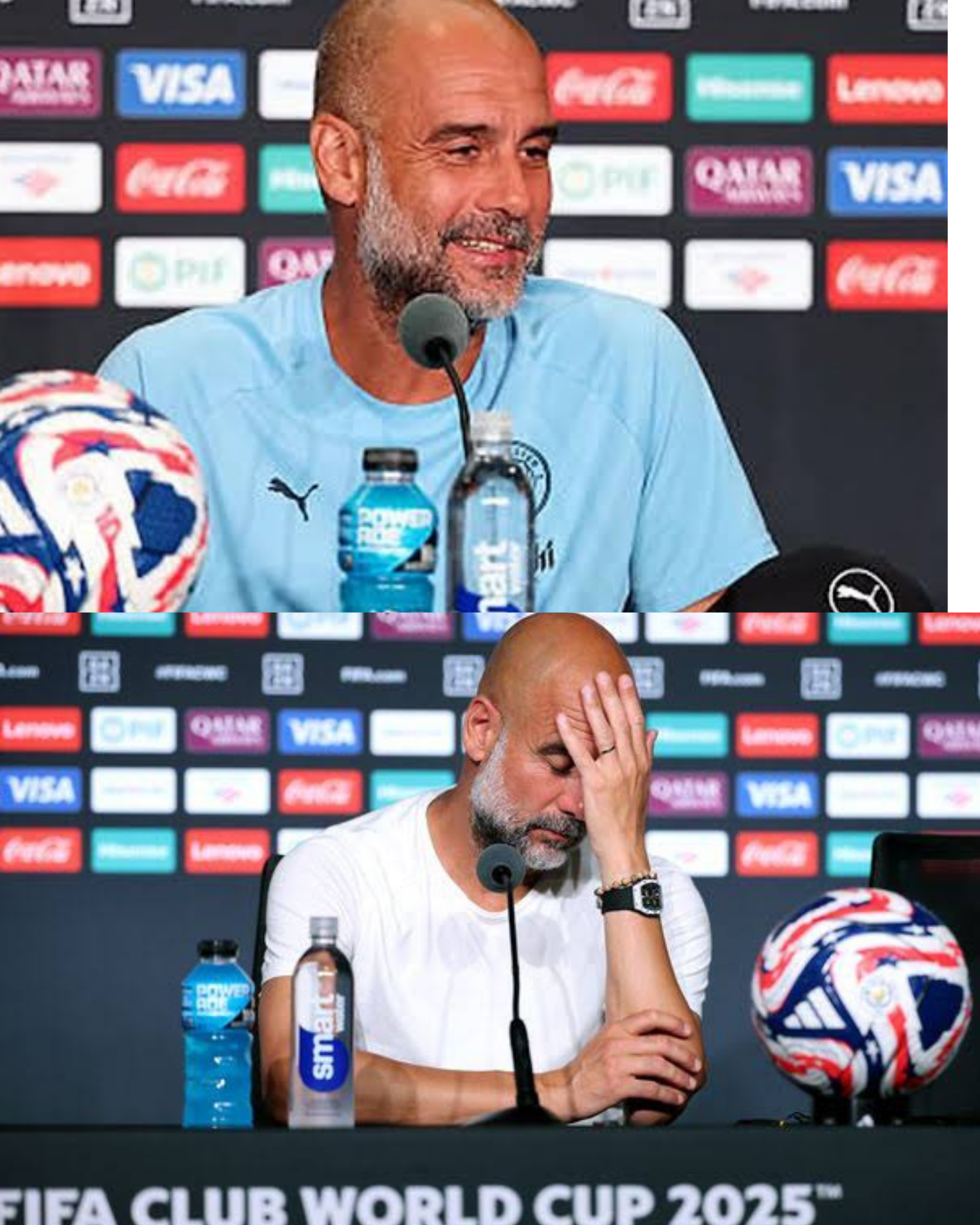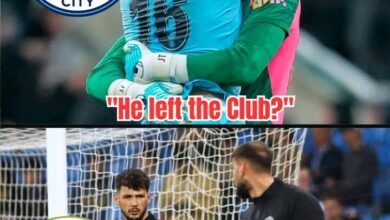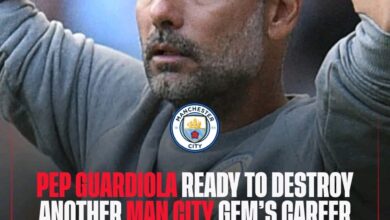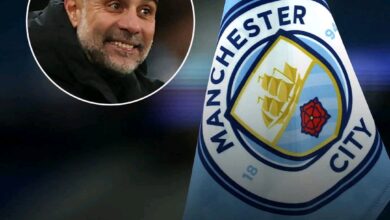Pep Guardiola’s Club World Cup Concerns: A Season-Defining Challenge for Manchester City

As Manchester City prepares for what promises to be another grueling campaign, manager Pep Guardiola has delivered a stark warning about the potential impact of the Club World Cup on his team’s Premier League aspirations. The Spanish tactician’s recent comments have sent shockwaves through the footballing world, as he boldly declared that City’s season could become “a disaster” due to the demanding nature of the expanded FIFA Club World Cup tournament.
The landscape of elite football has undergone a seismic shift with the introduction of the revamped Club World Cup format. What was once a relatively straightforward tournament featuring continental champions has evolved into a comprehensive competition that now demands significantly more from participating clubs. For Manchester City, who have established themselves as one of the world’s premier football institutions, this presents both an opportunity and a considerable challenge. Guardiola’s concerns stem from the tournament’s timing and its potential to disrupt the carefully orchestrated preparation that has become synonymous with City’s success over the past decade. The Catalan manager, known for his meticulous attention to detail and scientific approach to player management, recognizes that the compressed schedule could fundamentally alter how his team approaches the upcoming season.
The expanded Club World Cup represents FIFA’s ambitious vision to create a truly global club competition that rivals the prestige of the Champions League. However, this vision comes at a cost – one that clubs like Manchester City are now grappling with as they attempt to balance their domestic commitments with this new international obligation. Despite the looming challenge of the Club World Cup, Manchester City has not been idle in the transfer market. The club’s summer business has been characteristically strategic, with the acquisitions of Rayan Cherki, Rayan Ait-Nouri, and Tijani Reijnders representing a blend of youth, experience, and tactical versatility that has become the hallmark of City’s recruitment policy under Guardiola’s guidance.
Rayan Cherki’s arrival from Lyon brings a creative spark that could prove invaluable in breaking down stubborn defenses. The French attacking midfielder possesses the technical ability and vision that aligns perfectly with Guardiola’s possession-based philosophy. His addition suggests that City are looking to maintain their attacking fluidity while potentially preparing for the eventual departure of some of their current creative talents.
Rayan Ait-Nouri’s signing addresses a position that has required attention for some time. The Wolverhampton Wanderers full-back brings pace, defensive solidity, and attacking threat from wide areas – qualities that are essential in Guardiola’s system where full-backs often function as auxiliary midfielders during possession phases.
Tijani Reijnders represents perhaps the most intriguing of City’s summer acquisitions. The Dutch midfielder’s versatility and work rate make him an ideal fit for Guardiola’s tactical demands. His ability to operate in multiple positions across the midfield could prove crucial during the congested fixture list that lies ahead. These signings demonstrate City’s commitment to squad depth, a philosophy that may prove prescient given Guardiola’s concerns about player fatigue and the potential for injuries during the demanding months ahead.
Standing between Manchester City and progression in the Club World Cup is Saudi Pro League powerhouse Al-Hilal. This Round of 16 encounter represents more than just another fixture; it symbolizes the changing dynamics of world football and the rising influence of Saudi Arabian clubs in the global game. Al-Hilal, backed by significant financial resources and boasting a squad filled with international talent, presents a legitimate threat to City’s tournament ambitions. The Saudi side’s recent investments in world-class players and coaching staff have elevated their status from regional powerhouse to global contender.
For Guardiola, this match serves as both an opportunity and a potential pitfall. Victory would advance City to the quarterfinals, where they could face established European giants like Inter Milan or Chelsea. However, the energy and focus required to overcome Al-Hilal could prove costly in terms of player fatigue and injury risk.
The tactical battle between Guardiola and Al-Hilal’s coaching staff will be fascinating to observe. The Spanish manager’s ability to adapt his approach to different opponents has been one of his defining characteristics, but the unique challenges posed by a well-funded Saudi side operating with different tactical philosophies could test his tactical acumen.
Guardiola’s warning about the potential for disaster stems from a very real concern about fixture congestion and its impact on player welfare. The modern football calendar has become increasingly packed, with domestic leagues, European competitions, international tournaments, and now the expanded Club World Cup all competing for space in an already crowded schedule.
The Premier League’s unforgiving nature means that teams cannot afford to field weakened sides without risking their competitive position. City’s pursuit of multiple trophies each season requires a level of consistency that becomes increasingly difficult to maintain when players are suffering from fatigue and accumulated injuries.
The Club World Cup’s timing, occurring during what would traditionally be a period of rest and preparation, disrupts the natural rhythm of the football season. Players who would normally use this time to recover from the previous campaign and prepare for the challenges ahead are instead engaged in high-intensity competition against world-class opposition. This situation is compounded by the fact that many of City’s key players have also been involved in international competitions during the summer, further reducing their opportunities for rest and recovery. The cumulative effect of this continuous football could manifest in decreased performance levels, increased injury rates, and potential burnout among key squad members.
Guardiola’s concerns are not without precedent in football history. Previous instances of fixture congestion have had significant impacts on clubs’ seasonal performance, with many teams struggling to maintain their standards across multiple competitions simultaneously. The Spanish manager’s experience at Barcelona and Bayern Munich has provided him with firsthand knowledge of how demanding schedules can affect player performance. His success at those clubs was partly built on careful squad rotation and strategic rest periods – luxuries that may not be available during the upcoming season.
Manchester City’s recent dominance in English football has been built on consistency and the ability to maintain high performance standards throughout the campaign. The Club World Cup represents a potential disruption to this formula, introducing variables that could undermine the systematic approach that has brought the club such success. Beyond the physical demands, Guardiola’s comments also highlight the psychological challenges that come with an expanded tournament schedule. The mental fatigue that accompanies continuous high-level competition can be just as debilitating as physical exhaustion.
City’s players will need to maintain focus and motivation across multiple competitions, each with its own pressures and expectations. The Club World Cup, while prestigious, represents an additional burden on players who are already expected to perform at the highest level in domestic and European competition. Guardiola’s acknowledgment of these challenges demonstrates his understanding of the human element in football. His success has always been built on more than just tactical innovation; it has required careful management of player psychology and motivation.
The Club World Cup’s impact extends beyond immediate concerns about player fatigue. It could influence City’s approach to squad rotation, transfer policy, and tactical preparation throughout the season. The need for a deeper squad becomes more apparent when facing such a demanding schedule. City’s summer signings take on added significance in this context, as they provide Guardiola with additional options for rotation and tactical variation.
The tournament could also affect City’s priorities throughout the season. Decisions about which competitions to prioritize become more complex when the Club World Cup is added to an already demanding schedule of domestic and European fixtures
Guardiola’s comments reflect broader concerns about the direction of modern football. The continuous expansion of competitions and fixture lists raises questions about player welfare, competitive integrity, and the long-term sustainability of current trends. FIFA’s ambition to create a global club competition is understandable from a commercial and sporting perspective, but the practical implications for participating clubs are significant. The balance between global football development and the welfare of elite players remains a contentious issue.
City’s experience in this expanded Club World Cup could serve as a case study for other elite clubs facing similar challenges. The lessons learned from navigating this demanding schedule could influence future approaches to tournament management and player welfare.
Despite his concerns, Guardiola remains committed to competing for the Club World Cup trophy. His comments about trying to “relax, enjoy the days here and the good vibes” reflect his pragmatic approach to managing challenging situationwhatl
The City manager’s emphasis on helping his players “find within ourselves what we were” suggests that he views the tournament as potentially beneficial for team building and confidence, despite the physical demands it places on his squad.
The coming months will reveal whether Guardiola’s concerns prove prophetic or whether City’s quality and depth allow them to navigate the demanding schedule successfully. The club’s ability to adapt to these new challenges could define not just their upcoming season but their approach to similar situations in the future.
Pep Guardiola’s warning about the potential impact of the Club World Cup on Manchester City’s season reflects the complex challenges facing modern elite football clubs. The expanded tournament format, while offering new opportunities for global competition, presents significant logistical and physical challenges that could have far-reaching consequences.
City’s summer preparations, including strategic signings and tactical adjustments, demonstrate their commitment to meeting these challenges head-on. However, the ultimate test will come during the demanding months ahead, when the true impact of fixture congestion and player fatigue becomes apparent.
The football world will be watching closely to see how one of the game’s most successful managers navigates this unprecedented challenge. Guardiola’s ability to adapt and overcome obstacles has been a defining feature of his career, but the Club World Cup represents a unique test of his tactical acumen and man-management skills.
Whether City’s season becomes the “disaster” that Guardiola fears or another chapter in their remarkable success story will depend on their ability to balance ambition with pragmatism, quality with quantity, and global aspirations with domestic responsibilities. The answers to these questions will shape not only City’s immediate future but also the broader conversation about the direction of elite football in an increasingly demanding sporting landscape.















